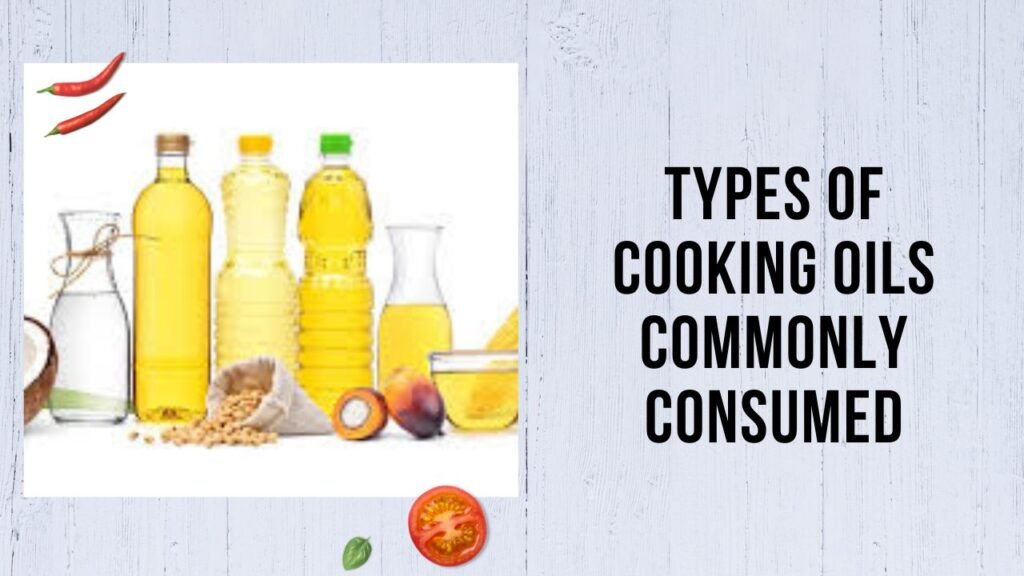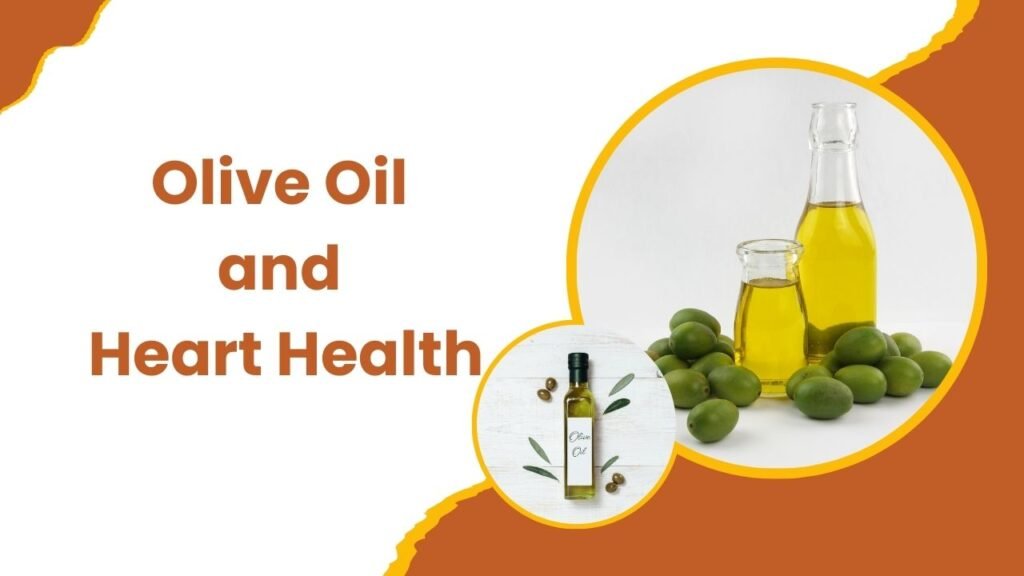Have you ever stumbled upon a health tip suggesting you drink cooking oil for weight loss or other benefits and wondered, “What happens if I drink cooking oil?” You’re not alone. In the age of wellness trends and viral health hacks, it’s easy to come across unconventional advice that piques our curiosity. But before you grab that bottle of olive oil or coconut oil, it’s essential to understand the potential impacts on your body. Let’s delve into the science, benefits, risks, and everything in between regarding drinking cooking oil.
Table of Contents
- Introduction to Drinking Cooking Oil
- Types of Cooking Oils Commonly Consumed
- Potential Benefits of Drinking Cooking Oil
- Risks and Side Effects
- Scientific Perspective: What Research Says
- How to Incorporate Cooking Oils Safely
- Frequently Asked Questions
- Conclusion
Introduction to Drinking Cooking Oil
Imagine starting your day with a tablespoon of your favorite cooking oil. It sounds unusual, right? But why do some people advocate for this practice? Understanding what happens if you drink cooking oil requires a closer look at both the potential benefits and the drawbacks. Cooking oils are a staple in our kitchens, but their role in our diet extends beyond just cooking. They are sources of essential fatty acids, vitamins, and antioxidants. However, consuming them straight isn’t as straightforward as it seems.
Why Consider Drinking Cooking Oil?
- Health Trends: From bulletproof coffee to oil pullings, wellness trends often highlight the benefits of certain oils.
- Nutrient Intake: Oils like olive and coconut are rich in healthy fats and can complement a balanced diet.
- Weight Management: Some believe that consuming oils can aid in feeling full and reducing overall calorie intake.
But is it safe? Let’s explore further.

Types of Cooking Oils Commonly Consumed
Not all cooking oils are created equal. The type of oil you choose can significantly influence the effects of consuming it directly.
Table 1: Popular Cooking Oils and Their Nutritional Profiles
| Cooking Oil | Type of Fat | Key Nutrients | Common Uses |
|---|---|---|---|
| Olive Oil | Monounsaturated | Vitamin E, antioxidants | Salad dressings, low-heat cooking |
| Coconut Oil | Saturated | Medium-chain triglycerides | Baking, sautéing, high-heat cooking |
| Avocado Oil | Monounsaturated | Vitamin E, lutein | High-heat cooking, drizzling |
| Canola Oil | Polyunsaturated | Omega-3 fatty acids | Frying, baking, general cooking |
| Sunflower Oil | Polyunsaturated | Vitamin E, omega-6 fatty acids | Frying, baking, salad dressings |
Understanding the Fats
- Monounsaturated Fats: Known for heart health benefits.
- Polyunsaturated Fats: Includes omega-3 and omega-6 fatty acids, essential for brain function and cell growth.
- Saturated Fats: Often debated, but certain types like those in coconut oil have unique properties.
Potential Benefits of Drinking Cooking Oil
While drinking cooking oil isn’t a mainstream health practice, some claim various benefits. Let’s unpack these claims.
1. Improved Heart Health
Certain oils, particularly olive and avocado oil, are rich in monounsaturated fats, which have been linked to reduced risk of heart disease. Consuming these fats can help lower bad cholesterol levels (LDL) and increase good cholesterol (HDL).
2. Enhanced Nutrient Absorption
Fats are essential for the absorption of fat-soluble vitamins like A, D, E, and K. Drinking cooking oil can potentially enhance the uptake of these vitamins from your meals.
3. Increased Satiety
Healthy fats can make you feel fuller for longer, potentially reducing overall calorie intake. This might aid in weight management by curbing overeating.
4. Boosted Metabolism
Medium-chain triglycerides (MCTs) found in coconut oil are metabolized differently, potentially increasing energy expenditure and fat burning.
5. Skin and Hair Health
The vitamins and antioxidants in oils like olive and coconut can contribute to healthier skin and hair when consumed regularly.
Personal Insight
I’ve always been intrigued by the idea of incorporating healthy fats into my diet more consciously. While cooking oils are a great source, the idea of drinking them directly seemed daunting until I researched the potential benefits and risks.
Risks and Side Effects
While there are potential benefits, it’s crucial to be aware of the possible downsides of drinking cooking oil.
1. Caloric Density
Cooking oils are high in calories. Consuming them in large quantities can lead to an excess calorie intake, potentially resulting in weight gain.
2. Digestive Issues
Drinking oil can cause gastrointestinal discomfort, including diarrhea, nausea, and stomach cramps. This is especially true if consumed in large amounts.
3. Nutrient Imbalance
Relying on oil as a supplement might lead to an imbalance in nutrient intake, potentially neglecting other essential food groups.
4. Increased Risk of Heart Disease
While some oils are heart-healthy, excessive consumption of saturated fats can raise cholesterol levels and increase the risk of heart disease.
5. Potential for Overconsumption
The ease of drinking oil might lead to overconsumption, especially if individuals are not mindful of their overall fat intake.
Personal Take
I remember trying a small amount of coconut oil daily and noticing slight digestive discomfort initially. It made me realize that while healthy fats are beneficial, moderation is key.
Scientific Perspective: What Research Says
Understanding what happens if you drink cooking oil also means looking at what science has to say about it. Here’s a summary of current research findings.

1. Olive Oil and Heart Health
Numerous studies have shown that olive oil, a staple of the Mediterranean diet, can reduce the risk of heart disease. Its monounsaturated fats help lower LDL cholesterol and improve heart health markers.
2. Coconut Oil and Metabolism
Coconut oil’s MCTs have been studied for their potential to boost metabolism and support weight loss. However, research is mixed, and excessive consumption may negate these benefits.
3. Avocado Oil and Nutrient Absorption
Avocado oil enhances the absorption of fat-soluble vitamins, supporting overall nutritional intake. It also has anti-inflammatory properties beneficial for joint and heart health.
4. Potential Downsides of Excessive Fat Intake
High intake of any fat, regardless of type, can lead to obesity, insulin resistance, and other metabolic issues. Balance and moderation are crucial.
Summary of Research
| Study Focus | Findings |
|---|---|
| Olive Oil | Reduced heart disease risk, improved cholesterol levels |
| Coconut Oil | Increased metabolism, potential weight loss; risk of elevated LDL cholesterol |
| Avocado Oil | Enhanced nutrient absorption, anti-inflammatory benefits |
| Excessive Fat Consumption | Increased risk of obesity, insulin resistance, heart disease |
Insights
The scientific community generally supports the benefits of healthy fats but emphasizes moderation. Drinking cooking oil can be beneficial if done within dietary guidelines, but excessive intake poses significant health risks.
How to Incorporate Cooking Oils Safely
If you’re curious about integrating healthy fats into your diet, here are some strategies that align with current health recommendations.
1. Use Oils in Cooking
Instead of drinking oil, use it as a component in your meals. Drizzle olive or avocado oil over salads, incorporate coconut oil in baking, or use canola oil for frying.
2. Measure Portions
If you choose to drink oil, limit yourself to a tablespoon or less per day to avoid excessive calorie and fat intake.
3. Combine with Other Foods
Mix oil with smoothies or other foods to enhance nutrient absorption without consuming it straight.
4. Listen to Your Body
Pay attention to how your body responds. If you experience digestive discomfort, reduce the amount or discontinue use.
5. Consult a Healthcare Professional
Before making significant changes to your diet, especially involving high-fat intake, consult with a nutritionist or healthcare provider.
Table 2: Safe Incorporation of Cooking Oils
| Method | Description | Benefits |
|---|---|---|
| Cooking and Baking | Use oils in recipes instead of consuming them raw | Enhances flavor, retains nutritional benefits |
| Salad Dressings | Mix oils with vinegar, herbs, and spices for salads | Improves nutrient absorption, adds healthy fats |
| Smoothie Additions | Blend a teaspoon of oil into your morning smoothie | Easy integration, boosts nutrient intake |
| Portion Control | Measure oil portions to avoid overconsumption | Maintains calorie balance, prevents weight gain |
| Variety of Oils | Use different oils for different meals and benefits | Provides a range of nutrients and health benefits |
Personal Opinion
Incorporating oils into my diet through cooking and salads has been a game-changer. It feels more natural and sustainable compared to the idea of drinking them straight, which can be off-putting and uncomfortable.
Frequently Asked Questions
1. What Happens If You Drink Cooking Oil?
Drinking cooking oil can lead to increased calorie intake, potential weight gain, digestive issues, and nutrient imbalances. However, consuming healthy oils in moderation can offer benefits like improved heart health and better nutrient absorption.
2. Is It Safe to Drink Cooking Oil Daily?
In small amounts, such as a tablespoon, it can be safe for most people. However, excessive consumption can lead to health issues like obesity, high cholesterol, and digestive problems. It’s best to consult a healthcare professional before making it a daily habit.
3. Which Cooking Oil is Best to Drink?
If you choose to consume cooking oil, olive oil and avocado oil are among the best options due to their high content of monounsaturated fats and additional health benefits.
4. Can Drinking Cooking Oil Help with Weight Loss?
While healthy fats can increase satiety and potentially reduce overall calorie intake, drinking oil alone is not a sustainable or effective weight loss strategy. It should be part of a balanced diet combined with regular exercise.
5. Are There Any Immediate Side Effects?
Yes, some people may experience digestive discomfort, including diarrhea, nausea, and stomach cramps, especially if they consume large amounts of oil.
6. How Much Cooking Oil is Safe to Drink?
A tablespoon per day is generally considered safe for most individuals. Exceeding this amount increases the risk of negative health effects.
7. Can Drinking Cooking Oil Improve Skin Health?
The vitamins and antioxidants in certain oils like olive and coconut can support skin health when included as part of a balanced diet. However, topical application is also essential for optimal benefits.
Conclusion
So, what happens if you drink cooking oil? The answer is a mix of potential benefits and significant risks. While incorporating healthy fats into your diet is essential for overall health, the method of consumption plays a crucial role in determining the outcomes. Drinking cooking oil in moderation can offer benefits like improved heart health and better nutrient absorption, but excessive intake can lead to weight gain, digestive issues, and other health problems.
Instead of drinking oil straight, consider integrating it into your meals through cooking, salad dressings, or smoothies. This approach not only makes the consumption more palatable but also allows your body to utilize the fats more effectively. Always listen to your body and consult with healthcare professionals when making significant dietary changes.
Remember, balance is key in any diet. Healthy fats are a vital component, but they should complement a diverse and balanced intake of nutrients. So, the next time you’re considering adding a bit of oil to your diet, think about how best to incorporate it in a way that supports your overall health and well-being.


